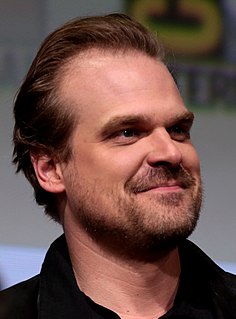A Quote by James Wan
I am a student of cinema, and I love filmmaking of all kinds.
Related Quotes
When I make a film, I am hoping to reinvent the genre a little bit. I just do it my way. I make my own little Quentin versions of them... I consider myself a student of cinema. It's almost like I am going for my professorship in cinema, and the day I die is the day I graduate. It is a lifelong study.
Narrative, fiction filmmaking is the culmination of several art forms: theater, art history, architecture. Whereas doc filmmaking is more pure cinema, like cinema verité is film in its purest form. You're taking random images and creating meaning out of random images, telling a story, getting meaning, capturing something that's real, that's really happening, and render this celluloid sculpture of this real thing. That's what really separates the power of doc filmmaking from fiction.
In cinema we have all kinds of ways of communicating: cinematography, lighting, character performance. If you pay attention to silent era movie actors, they are big about postures and really exaggerated expressions so you can understand how they feel. We use all kinds of techniques from cinema to help communicate emotion.

































